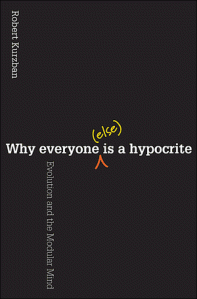
Many thanks again to the great group of occupational therapists, physical therapists, speech-language pathologists and educators who attended my interactive seminar in Atlantic City on Friday. It is the same type of seminar that I’ve given numerous times now over the past few months (see here), and it never gets tired!
The timing of the seminar was perfect, as the news about the King-Devick Saccade Test being used as a sideline screening for concussion was hot off the presses. We discussed how this test was developed by two optometrists while students at the Illinois College of Optometry, and that its original application was to help identify children with vision based reading problems. Clearly tests of this nature are just one part of the extensive evaluation conducted by developmental optometrists.
This prompted a question from one of the attendees as to why parents often receive conflicting opinions about vision as related to development, learning or brain injury depending on whether they see an ophthalmologist or developmental optometrist. It was a timely issue as well, since I had just blogged about the topic.
The answer resides in the illusion of objectivity given by many pediatric ophthalmologists in their opinion about Optometry in general, and optometric vision therapy in particular. This might be dismissed as a mere difference in professional opinion, were it not so egregious to the families who struggle to obtain help.
 Robert Kurzban is an evolutionary psychologist at the University of Pennsylvania whose wonderful new book, Why everyone (else) is a hypocrite, helped me understand this conundrum a bit better. If you look at the comments on my blog piece on January 29 you’ll see a point of view that seems contradictory when contrasted with that same doctor’s public statements on audio-tape that I cited on February 3. While I’m not necessarily saying that this individual is a hypocrite, clearly he is, in Kurzban’s terms strategically wrong. As Kurzban explains (p. 127) such individuals read selectively in order to build an argument which they can use to persuade others, that the people they are critiquing indeed hold the views they attribute to them. Here’s the key: By keeping strategically ignorant of where the authorities they criticize make the relevant arguments, these individuals can argue, without lying, that their criticisms are valid. The internet makes baseless criticism all the more transparent.
Robert Kurzban is an evolutionary psychologist at the University of Pennsylvania whose wonderful new book, Why everyone (else) is a hypocrite, helped me understand this conundrum a bit better. If you look at the comments on my blog piece on January 29 you’ll see a point of view that seems contradictory when contrasted with that same doctor’s public statements on audio-tape that I cited on February 3. While I’m not necessarily saying that this individual is a hypocrite, clearly he is, in Kurzban’s terms strategically wrong. As Kurzban explains (p. 127) such individuals read selectively in order to build an argument which they can use to persuade others, that the people they are critiquing indeed hold the views they attribute to them. Here’s the key: By keeping strategically ignorant of where the authorities they criticize make the relevant arguments, these individuals can argue, without lying, that their criticisms are valid. The internet makes baseless criticism all the more transparent.
The bottom line, as expressed increasingly well and forcefully by patients and parents who have common experiences, is that the public is best served in seeking care for developmental vision problems through the profession of Optometry. The beauty of this is that it is no longer Optometry and a handful of patients beating the drum with this message. It is a groundswell of public opinion that includes OTs, PTs, SLPs and Educators who hear the facts from the source rather than being deceived through illusions of objectivity.
– Leonard J. Press, O.D., FCOVD, FAAO
Beautifully said Len. Unfortunately, I agree that the opinion of most pediatric ophthalmologists go well beyond any possible differences in professional opinion. I often believe that many ped OMD’s would rather bite off their pinky than admit that optometric vision therapy has any value . This is so incredibly unfair to the parents and patients who suffer from vision related learning problems. My personal opinion is that this is a more a testament to ego than patient concern (I wish I believed differently). I’m sure it isn’t the case with all ped OMD’s, but it shouldn’t ever be the case.